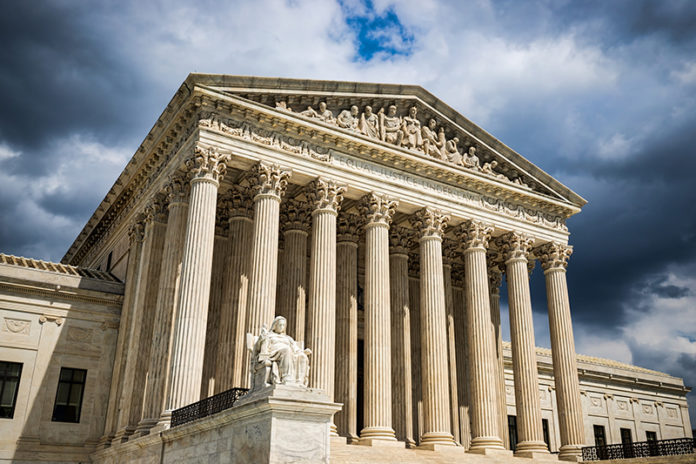Black women have been absent from the U.S. Supreme Court for the past 233 years, and some people are in no hurry to change that. They think objective merit is the only legitimate criterion in choosing justices. They are appalled that Joe Biden has pledged to nominate an African American to replace retiring Justice Stephen Breyer.
Sen. Ted Cruz, R-Texas, said: “Black women are, what, 6% of the U.S. population? He’s saying to 94% of Americans, ‘I don’t give a damn about you.'” Sen. Josh Hawley, R-Mo., accused Biden of being “race-obsessed, gender-obsessed.” Sen. John Kennedy, R-La., implied that Biden’s choice could only be a travesty: “I want a nominee who knows a law book from a J. Crew catalog.”
Ilya Shapiro, who was about to join the Georgetown University law faculty, groused that a “lesser Black woman” would be nominated instead of “the objectively best pick.” (He later apologized for his “poor choice of words” but was suspended by the school.)
Similar cries of outrage were not heard when Donald Trump pledged to nominate a woman after the death of Justice Ruth Bader Ginsburg — and proceeded to select Amy Coney Barrett. Or when Ronald Reagan, running in 1980, said he would name the first woman to the court. Or when George H.W. Bush claimed that Clarence Thomas, an African American, was “the best qualified” candidate.
All those presidents acknowledged that the court should no longer be the exclusive preserve of white men. They suggested that groups long unrepresented would bring valuable perspectives. Justice Thomas, asked later if it was appropriate to take such factors into consideration, said, “I’m glad we have the system we have, where you have presidents who nominate all sorts of different people.”
But Republicans have public opinion on their side. A new ABC News/Ipsos poll found that 76% of Americans want the president to consider “all possible nominees.”
But no president considers all possible nominees, and it’s silly to suggest that there is one “objectively best” candidate in all the land. Determining the world’s fastest human boils down to one simple question: Who holds the record for the 100-meter dash? Determining the best possible Supreme Court nominee is far more complicated and subjective.
It’s like deciding whom to admit to highly selective universities. Ivy League schools are besieged each year with applicants who would perform well academically if admitted. But since these schools can’t take everyone who could graduate, or even everyone who could graduate with honors, they seek out students who bring different talents, experiences, backgrounds and interests.
This approach rests on the notion that all students benefit when they are not all cut from the same old cloth. It’s plausible to assume that the Supreme Court also gains when someone arrives who is different from present and former justices.
As it is, 115 humans have served as justices, 110 of them men and 112 of them white. The court’s slogan could be: “Looking for a qualified Black woman since 1789.”
Not so long ago, presidents considered only pallid males. Even within that narrow pool, choices were not made on pure merit. After the Senate rejected Richard Nixon’s first choice for the court, Clement Haynsworth of South Carolina, the president ordered an aide: “Find a good federal judge further South and further to the right!”
When Ronald Reagan chose Antonin Scalia in 1986, he “felt that it would be great to put an Italian American on the Supreme Court,” according to his White House counsel, Peter Wallison.
When the second Jewish justice, Benjamin Cardozo, died in 1938, Franklin Roosevelt nominated Felix Frankfurter, who was Jewish. When Frankfurter retired in 1962, John Kennedy chose Arthur Goldberg for the “Jewish seat.” When Goldberg left, Lyndon Johnson adhered to custom with Abe Fortas.
Even now, Republicans don’t really want to cast a wide net. They expect Republican presidents to choose nominees who align with the staunchly conservative Federalist Society and are young enough to stick around for a long time. If you’re a little too moderate or a little too old — well, they don’t care if you’re “objectively best.”
There are plenty of possible Biden nominees who have the credentials, experience, ability and judgment to make good or excellent justices. The Supreme Court has an ancient and regrettable tradition of having no place for Black women, and it’s not too soon for that tradition to end.































